Story by Jeff Lilly
Photos by Jeff Lilly and
courtesy of Puzzle Piece Theatre
On an unseasonably warm January morning, I found myself at 460 Hilton Road, in one of the tiny industrial buildings between 8 and 9 Mile, standing on what was once a factory floor. There, I watched actors Steven Davenport, Anna Marck, and Casey Hibbert stand in a triangle, facing each other, and do a slow series of stretches and motions, perfectly mimicking each other.
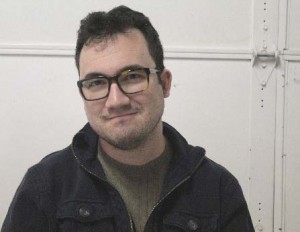 D.B. Schroeder, Producing Artistic Director of the Puzzle Piece Theatre, stood nearby, watching this exercise designed to get everyone in synch. In just a few weeks, the three actors will become robots in a modern, steampunk-inspired staging of a 96-year old groundbreaking science fiction play by Czech writer Karel Capek; Rossum’s Universal Robots, or R.U.R. for short. How groundbreaking? Among other things, this is the very work that gave the word robot to the world’s lexicon. Rossum’s Universal Robots is Puzzle Piece’s largest and most ambitious production to date, featuring ten actors. Schroeder calls it a “cautionary tale” that examines many of the same themes of overreliance on technology, dehumanization, and the human cost of progress that its film contemporary, Fritz Lang’s Metropolis, explored.
D.B. Schroeder, Producing Artistic Director of the Puzzle Piece Theatre, stood nearby, watching this exercise designed to get everyone in synch. In just a few weeks, the three actors will become robots in a modern, steampunk-inspired staging of a 96-year old groundbreaking science fiction play by Czech writer Karel Capek; Rossum’s Universal Robots, or R.U.R. for short. How groundbreaking? Among other things, this is the very work that gave the word robot to the world’s lexicon. Rossum’s Universal Robots is Puzzle Piece’s largest and most ambitious production to date, featuring ten actors. Schroeder calls it a “cautionary tale” that examines many of the same themes of overreliance on technology, dehumanization, and the human cost of progress that its film contemporary, Fritz Lang’s Metropolis, explored.
One wonders if Mr. Capek himself would marvel at the juxtaposition of time, place, and style, the future he imagined versus the future we have, with human concerns remaining timeless. Provoking these conversations and expanding the boundaries of theater are what Puzzle Piece is all about.
“We incorporated in 2011.” Schroeder says. “Our first production was a shared storytelling experience on Belle Isle. We spent about a year getting it together.” Launched with a Kiva microloan, the experience was a success, and money left over was rolled over into the next project.
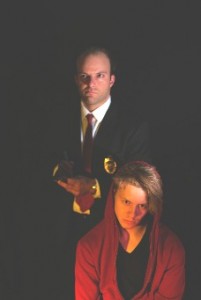 Puzzle Piece was on its way, but they remained nomadic for the first few years. Based in Mt. Clemens for the first season (two shows,) then the Abreact in Detroit for the following season, both of these early venues closed, forcing them to keep moving. But then, “Bailey Boudreau (Artistic Director of the Slipstream Theatre Initiative) approached us when they found this venue in Ferndale, and asked if we’d like to be in residence here.” During Slipstream’s down time, Puzzle Piece rents the venue and puts on their plays. “I think it’s a great match, because they focus on reimagining the classics, and we skew more contemporary.”
Puzzle Piece was on its way, but they remained nomadic for the first few years. Based in Mt. Clemens for the first season (two shows,) then the Abreact in Detroit for the following season, both of these early venues closed, forcing them to keep moving. But then, “Bailey Boudreau (Artistic Director of the Slipstream Theatre Initiative) approached us when they found this venue in Ferndale, and asked if we’d like to be in residence here.” During Slipstream’s down time, Puzzle Piece rents the venue and puts on their plays. “I think it’s a great match, because they focus on reimagining the classics, and we skew more contemporary.”
“We try to take storytelling and find new pathways for audiences to approach the work,” Schroeder continues. “I like playing with framing devices. We like to surprise the audience. Often I’ll have the space active, with actors doing things as the audience enters.” Puzzle Piece’s productions are intimate and immediate; for the upcoming staging of R.U.R., there are only 30 seats.
Asked about the process of choosing material, Schroeder explains, “We like doing work that you can’t find other places, work that has topical social themes.” That includes choosing works that stretch boundaries and comfort zones. Last year’s White People explored racism and perceptions of minorities from the perspective of three whites from different places and socioeconomic backgrounds. “It was a controversial show, and we knew that going in.” Schroeder says. Past productions had been criticized, and “Our version was kind of skewered in the Metro Times.” They praised the production, but had issues with the content. For Schroeder, that’s a risk worth taking. “Theater can ask questions that aren’t being asked, or reframe the debate.” He explains. With Detroit seeing a new influx of young whites moving back to a predominantly African-American city, Schroeder points out, it’s also topical.
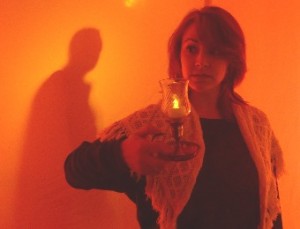 Puzzle Piece has also performed such diverse works as Matthew Osman’s The Boy Who Cried, a meditation on mental illness and depression presented as the interrogation and trial of a boy accused of being a werewolf; Tennessee Williams’ The Glass Menagerie, exploring the reactions of those left behind when people flee an area, and Lanford Wilson’s Talley’s Folly, about two outsiders finding their shared value together.
Puzzle Piece has also performed such diverse works as Matthew Osman’s The Boy Who Cried, a meditation on mental illness and depression presented as the interrogation and trial of a boy accused of being a werewolf; Tennessee Williams’ The Glass Menagerie, exploring the reactions of those left behind when people flee an area, and Lanford Wilson’s Talley’s Folly, about two outsiders finding their shared value together.
How does a small theater group stay afloat financially? “Our budget is less than $15,000 a year.” Schroeder says. They pay the actors a stipend, which Schroeder wistfully admits is too low for the amount of work the actors put in. Schroeder and Associate Artistic Director Laura Heikkinen, however, volunteer their time to the productions.
A big key is smart use of limited resources. “One of our reviews praised our ‘ingenuity,’ which is a good way to describe us.” Schroeder says. They also have a small but growing core of supporters that provide a good chunk of operating budget. They’ve been successful enough to expand to three shows this season. Puzzle Piece is also starting to sell program space to advertisers, and is actively looking for corporate sponsorship. Puzzle Piece Theatre is a 501c3 charity, so they can offer tax deductions to donors.
Ticket sales, though, are still the most important source of revenue. Letting people know they exist is the biggest problem. With their limited resources best used for production instead of advertising, word-of-mouth and social media are being used to inexpensively build a following. After getting coverage on WDET, Schroeder says, “People have heard of us now. But raising awareness and getting the word out… that’s the key (to growth.)”
Having worked in various theatrical markets across the country (Schroeder is from St. Louis, and worked in Chicago before relocating the the Detroit area,) he is “Very excited by the different type work being done here in Detroit. There really is a place here for different types of work. Audiences here are realy willing to embrace new things.”
Rossum’s Universal Robots runs from February 12 through 28 on Fridays and Saturdays at 8:00 P.M. and Sundays at 2:00 P.M. at the Slipstream Theater, located at 460 Hilton in Ferndale. Tickets are $20 and are only available online. To purchase tickets or for more information on Puzzle Piece Theatre, visit their website at www.puzzlestage.org. Check out their Facebook page at www.facebook.com/PuzzlePieceTheatre.
If something happened with our health, we believe there is a solution to any maladies in a preparation. What medicines do patients purchase online? Viagra which is used to treat impotence and other states connected to erectile dysfunction. Learn more about “sildenafil“. What folk talk about “viagra stories“? The most substantial aspect you should look for is “sildenafil citrate“. Such problems commonly signal other problems: low libido or erectile dysfunction can be the symptom a strong health problem such as soul trouble. Causes of sexual dysfunction include injury to the penis. Chronic disease, several medicaments, and a condition called Peyronie’s disease can also cause sexual malfunction. Even though this medicine is not for use in women, it is not known whether this medication passes into breast milk.


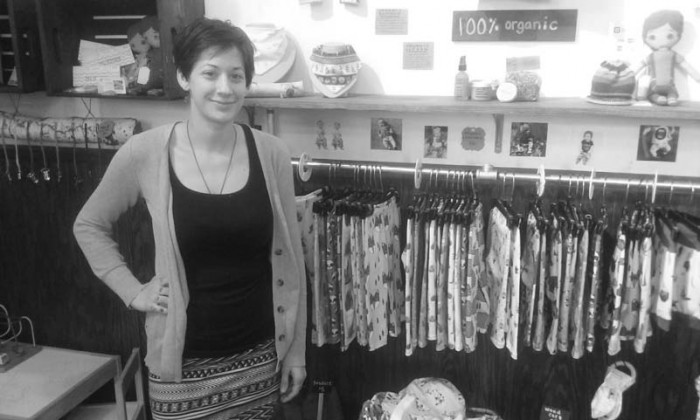
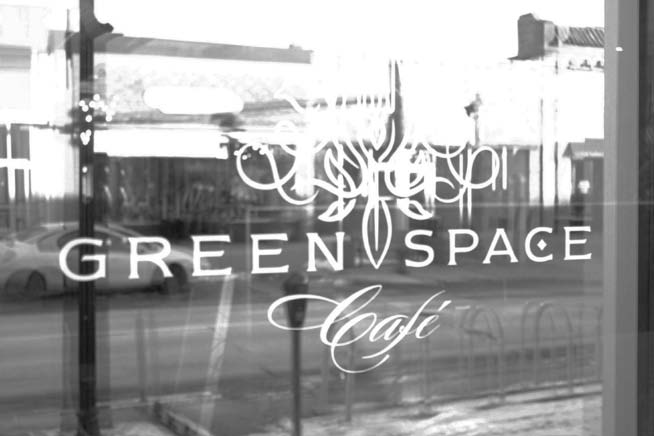
 That’s why he and his son, Daniel, recently opened GreenSpace Cafe, Ferndale’s newest vegan restaurant. Besides the owners, and General Manager Amber Poupore, I spoke to George Vutetakis.
That’s why he and his son, Daniel, recently opened GreenSpace Cafe, Ferndale’s newest vegan restaurant. Besides the owners, and General Manager Amber Poupore, I spoke to George Vutetakis.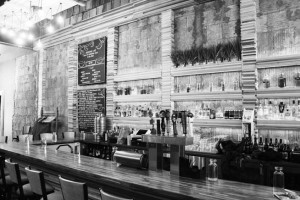 Dr. Joel Kahn has been eating a plant-based diet since 1977, and has been a vegan since 1990.
Dr. Joel Kahn has been eating a plant-based diet since 1977, and has been a vegan since 1990.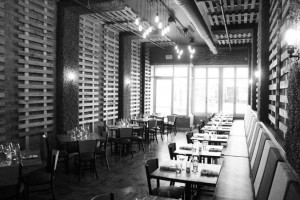 Chef Vutetakis enjoys working with local vendors and with vendors as far away as Peru.He also pointed out that many house-made elements go into the dishes. GreenSpace Cafe makes its own yogurt, sweet potato gnocchi, and nut cheeses such as cashew cheese and almond parmesan. They also make their own kimchi, crackers, and breads. He also pointed out that the bartenders make their own elixers. Vutetakis then went on to discuss the science of food. He pointed out that most of the flavor and texture in foods come from plants and if you remove the carbon and fat from a meal, only the plants remain. So GreenSpace Cafe can produce very satisfying dishes, which are rich in flavor, using plant-based ingredients alone.
Chef Vutetakis enjoys working with local vendors and with vendors as far away as Peru.He also pointed out that many house-made elements go into the dishes. GreenSpace Cafe makes its own yogurt, sweet potato gnocchi, and nut cheeses such as cashew cheese and almond parmesan. They also make their own kimchi, crackers, and breads. He also pointed out that the bartenders make their own elixers. Vutetakis then went on to discuss the science of food. He pointed out that most of the flavor and texture in foods come from plants and if you remove the carbon and fat from a meal, only the plants remain. So GreenSpace Cafe can produce very satisfying dishes, which are rich in flavor, using plant-based ingredients alone.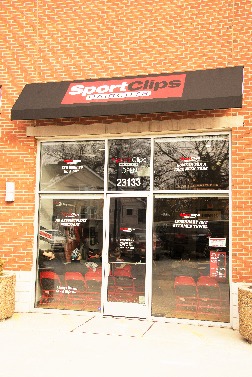
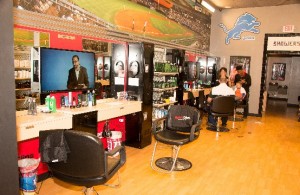 I had the opportunity to sit down with owner Mike Williams, and that was the first thing we spoke about. “I wanted to set myself apart from other barber shops around. I wanted to offer more than just haircuts but more of an experience. So I offer my customers an ‘MVP’ experience. My stylist are paid hourly like a regular job, and they get W2s just like everyone else. I didn’t want them to have to be private contractors. Ferndale is a very diverse town, and I want to provide for the community and offer jobs to people locally.”
I had the opportunity to sit down with owner Mike Williams, and that was the first thing we spoke about. “I wanted to set myself apart from other barber shops around. I wanted to offer more than just haircuts but more of an experience. So I offer my customers an ‘MVP’ experience. My stylist are paid hourly like a regular job, and they get W2s just like everyone else. I didn’t want them to have to be private contractors. Ferndale is a very diverse town, and I want to provide for the community and offer jobs to people locally.”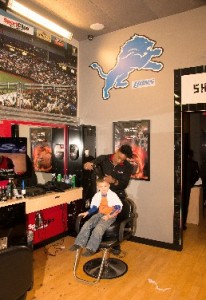 As the conversation went on, he explained to me that instead of providing just a haircut to his customers, they also get a hot, steamed towel treatment, a massaging shampoo treatment, and a neck and shoulder massage. I had the pleasure of seeing for myself, and I can report that Sport Clips is indeed more than just a cut and dash.
As the conversation went on, he explained to me that instead of providing just a haircut to his customers, they also get a hot, steamed towel treatment, a massaging shampoo treatment, and a neck and shoulder massage. I had the pleasure of seeing for myself, and I can report that Sport Clips is indeed more than just a cut and dash.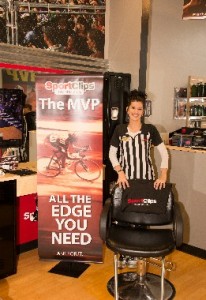 I was led to the back room and a lovely lady sat me down in a chair. The lights were dimmed and she laid my head back to rest. In my head, I was under the impression that this only happened in hair salons, but I was mistaken. She told me to close my eyes and I relaxed as she placed a hot towel around my neck and began to massage my scalp. Total bliss. I didn’t want to get up! Moments later we were done. While sitting in the barber chair I had the chance to catch the Lions game on a big screen TV directly in front of me. I had the best time of my life while getting a haircut!
I was led to the back room and a lovely lady sat me down in a chair. The lights were dimmed and she laid my head back to rest. In my head, I was under the impression that this only happened in hair salons, but I was mistaken. She told me to close my eyes and I relaxed as she placed a hot towel around my neck and began to massage my scalp. Total bliss. I didn’t want to get up! Moments later we were done. While sitting in the barber chair I had the chance to catch the Lions game on a big screen TV directly in front of me. I had the best time of my life while getting a haircut!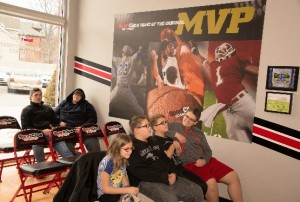 During our conversation, Mike made mention of something I thought vitally important. “I don’t want people to have the misconception that this business is a part of a corporate chain. This location is solely owned by me. Although there are 1,500 Sport Clips nationwide, all but 40 are individually owned.” Mike hires local employees, and also sponsors local schools and events throughout the city of Ferndale. Mike is an entrepreneur and firm believer of giving back to the community, and not just pulling money from it.
During our conversation, Mike made mention of something I thought vitally important. “I don’t want people to have the misconception that this business is a part of a corporate chain. This location is solely owned by me. Although there are 1,500 Sport Clips nationwide, all but 40 are individually owned.” Mike hires local employees, and also sponsors local schools and events throughout the city of Ferndale. Mike is an entrepreneur and firm believer of giving back to the community, and not just pulling money from it.
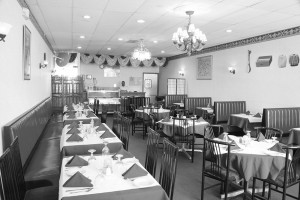 Offering much more than the traditional curry, India’s Millennial generation is adventurous, and the cuisine encompasses a wide variety of regional cuisines native to India. The foods included in the buffet change daily, creating a place where people who love ethnic Indian food can eat lunch regularly. The buffet, which includes salad, naan and dessert, typically includes two types of rice, two unique chicken dishes plus an Indian BBQ chicken, and two unique vegetarian dishes, as well. Given the range of diversity in soil type, climate and occupations, these cuisines vary significantly from each other and use locally available spices, herbs, vegetables and fruits. Indian food is also heavily influenced by religious and cultural choices.
Offering much more than the traditional curry, India’s Millennial generation is adventurous, and the cuisine encompasses a wide variety of regional cuisines native to India. The foods included in the buffet change daily, creating a place where people who love ethnic Indian food can eat lunch regularly. The buffet, which includes salad, naan and dessert, typically includes two types of rice, two unique chicken dishes plus an Indian BBQ chicken, and two unique vegetarian dishes, as well. Given the range of diversity in soil type, climate and occupations, these cuisines vary significantly from each other and use locally available spices, herbs, vegetables and fruits. Indian food is also heavily influenced by religious and cultural choices.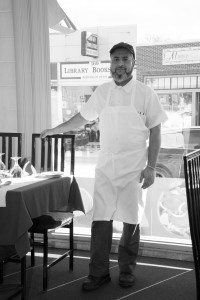 If, during this winter, you find yourself cold and hungry at lunch time, the buffet offers a myriad of high-quality, uniquely-fused options at a low price. If you’re looking for something lighter, I recommend the newest dish, Chicken Pikka Wrap, which contains all the typical veggies, but is rolled up in warm naan bread, with plenty of flavors to choose from. There are 12 types of bread to choose from, including: naan with onion and coriander, ground lamb, baked with garlic, baked with almond/raisin/coconut, or cheese, or baked with Chicken Tikka. In all, there are 52 meal choices available.
If, during this winter, you find yourself cold and hungry at lunch time, the buffet offers a myriad of high-quality, uniquely-fused options at a low price. If you’re looking for something lighter, I recommend the newest dish, Chicken Pikka Wrap, which contains all the typical veggies, but is rolled up in warm naan bread, with plenty of flavors to choose from. There are 12 types of bread to choose from, including: naan with onion and coriander, ground lamb, baked with garlic, baked with almond/raisin/coconut, or cheese, or baked with Chicken Tikka. In all, there are 52 meal choices available.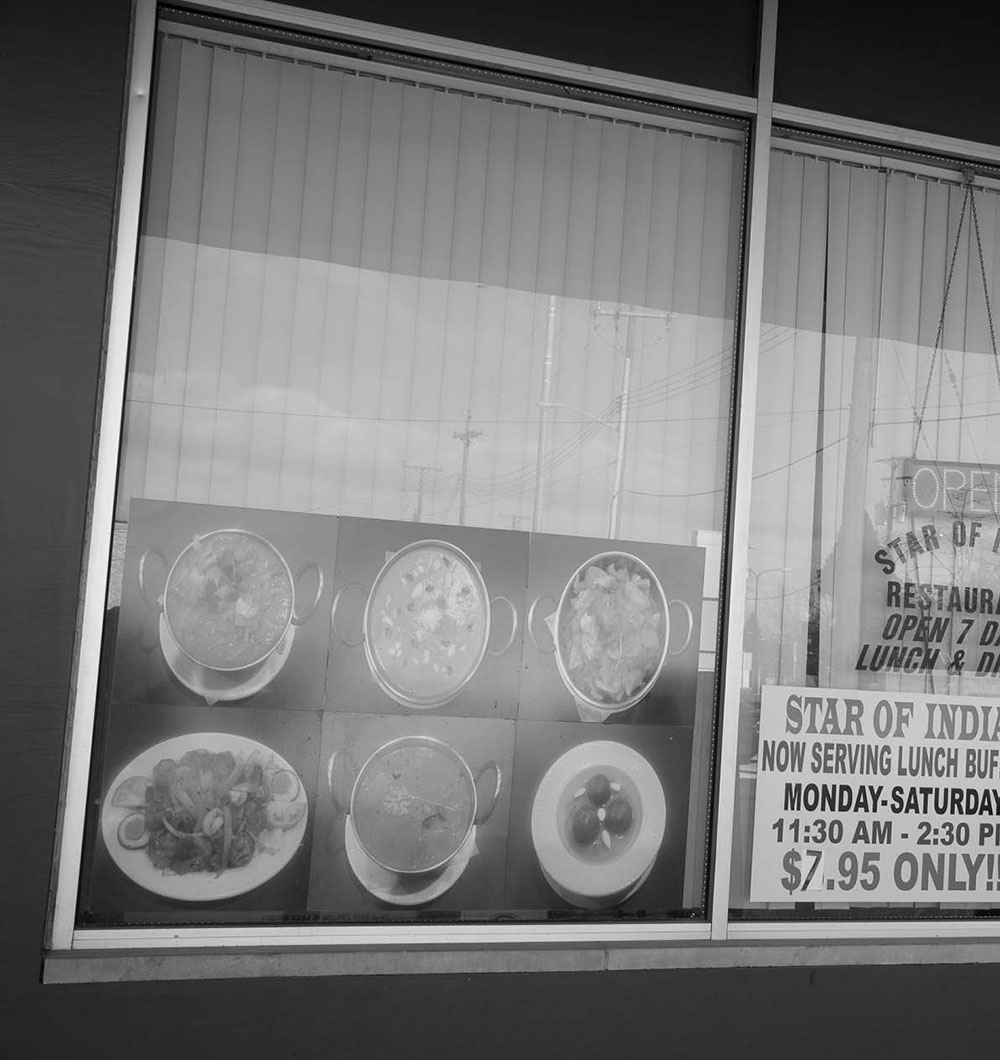
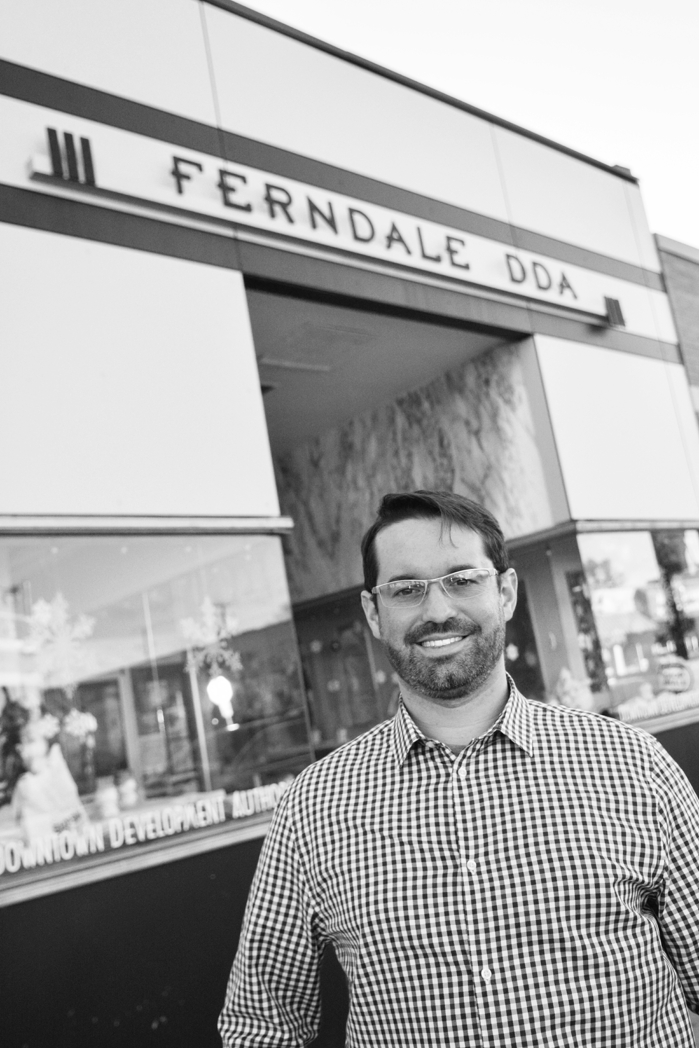
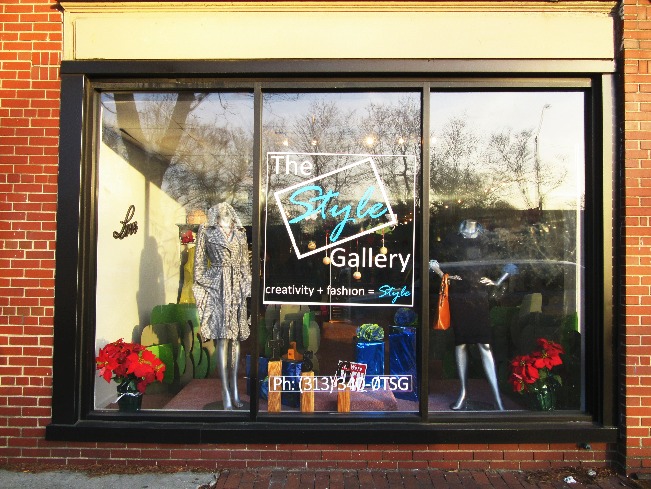
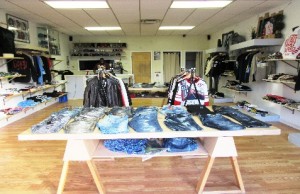 Rufus Bartell has been instrumental in recruiting businesses to the historic district. Bartell opened Simply Casual, a boutique that sells both women’s and men’s clothing, in 1996. He says Simply Casual is a lifestyle store “for people who work hard and play hard.” He believes Detroit’s fashion has a unique style, and though he sells Detroit style clothing, he pushes the limits to bring new ideas to the city. “We have a style very unique on its own, with very different kinds of pockets. Weather influences how a lot of Detroiters dress and their simple style and taste,” Bartell explained. He collaborates with local designers and international designers from all over the world, including London, Italy, and Turkey, to name a few. Bartell says Detroit fashion is all over the place, and considers it a dress-up town. “We’ve always had a very stylish caché, dating back to our late, great Mayor Coleman Young, who was always dressed to the nines anytime you saw him,” Bartell said. In addition to clothing, Simply Casual sells bath and body products and candles made by Detroit companies.
Rufus Bartell has been instrumental in recruiting businesses to the historic district. Bartell opened Simply Casual, a boutique that sells both women’s and men’s clothing, in 1996. He says Simply Casual is a lifestyle store “for people who work hard and play hard.” He believes Detroit’s fashion has a unique style, and though he sells Detroit style clothing, he pushes the limits to bring new ideas to the city. “We have a style very unique on its own, with very different kinds of pockets. Weather influences how a lot of Detroiters dress and their simple style and taste,” Bartell explained. He collaborates with local designers and international designers from all over the world, including London, Italy, and Turkey, to name a few. Bartell says Detroit fashion is all over the place, and considers it a dress-up town. “We’ve always had a very stylish caché, dating back to our late, great Mayor Coleman Young, who was always dressed to the nines anytime you saw him,” Bartell said. In addition to clothing, Simply Casual sells bath and body products and candles made by Detroit companies. Other boutique owners on the Avenue of Fashion have also been influenced by Detroit’s creative style. Jackie Terry, owner of The Style Gallery, also pushes to the bar on what she considers Detroit fashion. “I don’t conform to what is expected from an inner city boutique. I pride myself on doing cutting edge designs, not the norm.” Terry said. She opened The Style Gallery in 2002, shortly before graduating from Wayne State University with a B.A. in fashion design and merchandising. The posh boutique’s first location was in the New Center One Building. Terry decided to relocate to Avenue of Fashion in 2011 after friends who own salons there convinced her to move. Terry says she’s happy with the area and feels there’s a good camaraderie amongst business owners. She’s also seen an increase in sales and is excited about growing her clientele. Terry creates outfits with two other designers, and works with manufactures from all over the U.S., including New York and California. The Style Gallery predominately sells women’s clothing, but also offers custom ordered men’s pieces such as shirts, suits, blazers, and hats.
Other boutique owners on the Avenue of Fashion have also been influenced by Detroit’s creative style. Jackie Terry, owner of The Style Gallery, also pushes to the bar on what she considers Detroit fashion. “I don’t conform to what is expected from an inner city boutique. I pride myself on doing cutting edge designs, not the norm.” Terry said. She opened The Style Gallery in 2002, shortly before graduating from Wayne State University with a B.A. in fashion design and merchandising. The posh boutique’s first location was in the New Center One Building. Terry decided to relocate to Avenue of Fashion in 2011 after friends who own salons there convinced her to move. Terry says she’s happy with the area and feels there’s a good camaraderie amongst business owners. She’s also seen an increase in sales and is excited about growing her clientele. Terry creates outfits with two other designers, and works with manufactures from all over the U.S., including New York and California. The Style Gallery predominately sells women’s clothing, but also offers custom ordered men’s pieces such as shirts, suits, blazers, and hats.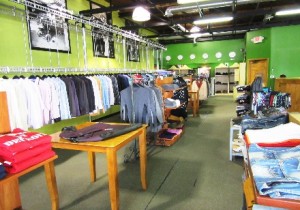 There are also stores on the Avenue of Fashion that exclusively sell men’s clothing, for example Flagship Boutique, owned by Tarik Haygood and Joseph Lawton. The pair opened the boutique almost four years ago, and make all their t-shirts on location. Haygood owns the brand District 81 and Lawton owns the brand Joe’s Coney Island, both of which are sold at the boutique. In addition to selling t-shirts, sweatshirts, blue jeans, and jackets, the store also sells CDs by Detroit artists.
There are also stores on the Avenue of Fashion that exclusively sell men’s clothing, for example Flagship Boutique, owned by Tarik Haygood and Joseph Lawton. The pair opened the boutique almost four years ago, and make all their t-shirts on location. Haygood owns the brand District 81 and Lawton owns the brand Joe’s Coney Island, both of which are sold at the boutique. In addition to selling t-shirts, sweatshirts, blue jeans, and jackets, the store also sells CDs by Detroit artists.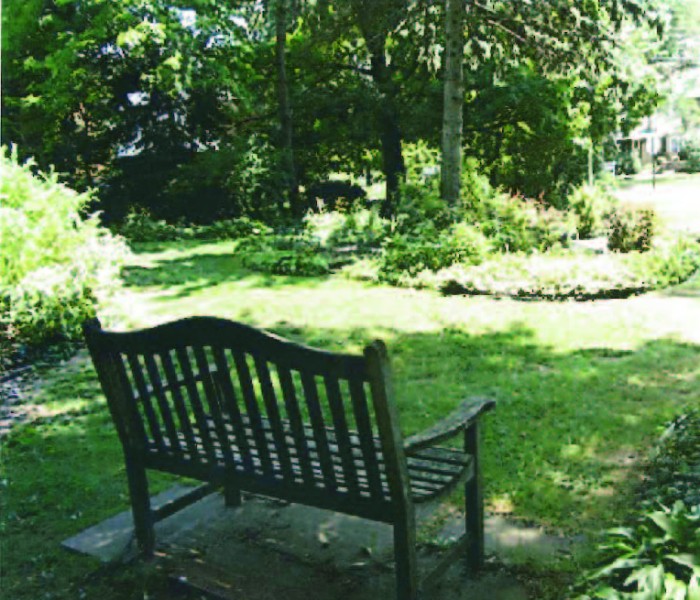
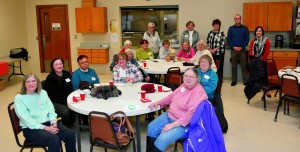 Club member Jean Russell told about a Ferndale Seniors trip to the Rouge plant, part of the tour being a view and explanation of the plant’s huge green roof, a many-acres version of our library’s roof. Jean pointed out something about most of our own good intentions: We live near these wonderful places but often don’t visit them. She noticed more out-of-towners than locals, the foreign languages of auto show attendees being noticeable. The group tends the community garden at our north end of Livernois on Oakridge. If you haven’t strolled through there, take a wander at any time of year. I’m always fascinated by the variety of ground covers.
Club member Jean Russell told about a Ferndale Seniors trip to the Rouge plant, part of the tour being a view and explanation of the plant’s huge green roof, a many-acres version of our library’s roof. Jean pointed out something about most of our own good intentions: We live near these wonderful places but often don’t visit them. She noticed more out-of-towners than locals, the foreign languages of auto show attendees being noticeable. The group tends the community garden at our north end of Livernois on Oakridge. If you haven’t strolled through there, take a wander at any time of year. I’m always fascinated by the variety of ground covers.
 Robert: My name is Robert Primeau and I’m a 32 year old landscape designer for the U.S. Fish and Wildlife Service, where I am currently working on the design and management of infrastructure and restoration projects at the Detroit River International Wildlife Refuge, located largely in Downriver and the only multinational Refuge on the continent. I also have experience in open space preservation development, air monitoring, and wetland science. I was born and raised in Downriver but have counted Ferndale my home since 2012. I love sci-fi, standup comedy and I garden way too much.
Robert: My name is Robert Primeau and I’m a 32 year old landscape designer for the U.S. Fish and Wildlife Service, where I am currently working on the design and management of infrastructure and restoration projects at the Detroit River International Wildlife Refuge, located largely in Downriver and the only multinational Refuge on the continent. I also have experience in open space preservation development, air monitoring, and wetland science. I was born and raised in Downriver but have counted Ferndale my home since 2012. I love sci-fi, standup comedy and I garden way too much.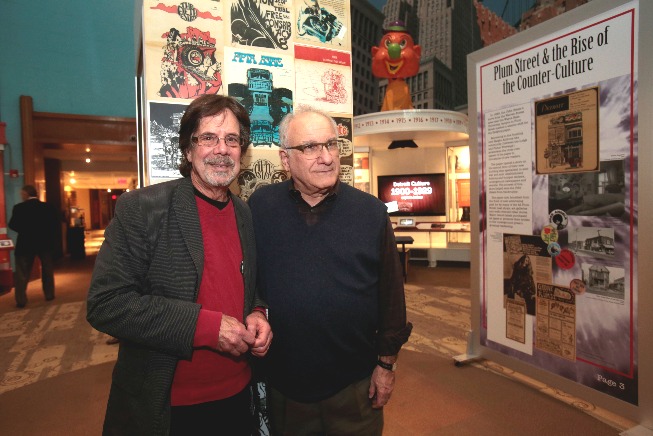
 Just what is anarchism? You might picture bomb-tossers in silent films, but in Werbe’s words, it is a “Utopian sense that society could move beyond its negative aspects: violence, war, poverty. The Spanish and Italians talked about ‘the ideal.’ Anarchism is a personal code of conduct to uphold while you’re trying to bring about a different society. Neither side of the current political groups are very admirable.”
Just what is anarchism? You might picture bomb-tossers in silent films, but in Werbe’s words, it is a “Utopian sense that society could move beyond its negative aspects: violence, war, poverty. The Spanish and Italians talked about ‘the ideal.’ Anarchism is a personal code of conduct to uphold while you’re trying to bring about a different society. Neither side of the current political groups are very admirable.”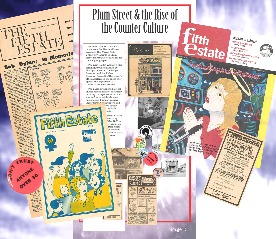 “I couldn’t even imagine being fifty years older.” Werbe says with a chuckle. Still, he has his eyes on the future. “We’re looking for the next generation… writers to help continue the magazine’s publication for the next 50 years, and also to expand its readership.”
“I couldn’t even imagine being fifty years older.” Werbe says with a chuckle. Still, he has his eyes on the future. “We’re looking for the next generation… writers to help continue the magazine’s publication for the next 50 years, and also to expand its readership.”